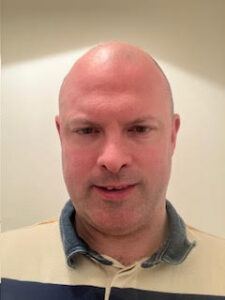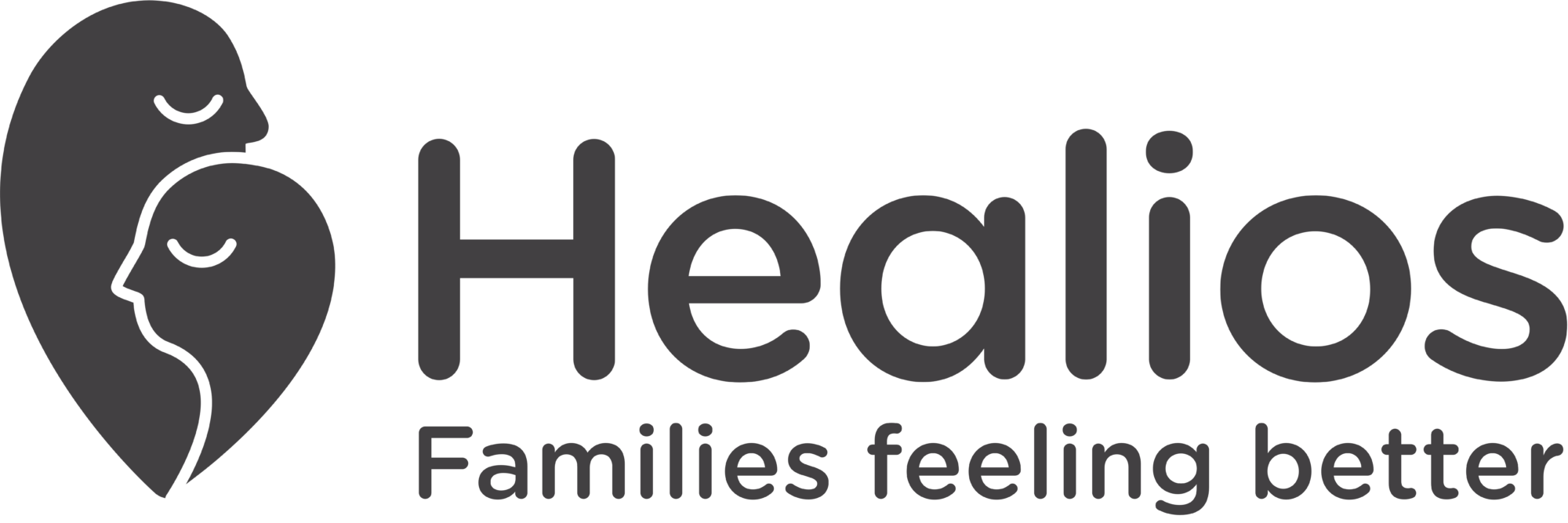At Healios we fully embrace neurodiversity within our workplace and we’re proud to have a diverse array of colleagues who can each bring their own unique skills and life experiences to supporting our patients and families.
As we mark Neurodiversity Celebration Week 2024 (March 18-24) we’ve spoken with Gareth Wood, who has worked as a Specialist Neurodevelopment Practitioner at Healios for the last two years focusing on supporting families through their autism diagnostic assessments.
Gareth, who lives in Bolton with his wife and two young daughters, uses his own lived experience having received a later in life diagnosis of autism at the age of 40 to provide invaluable insight into how the young people and families he sees every day are impacted before and after the assessment.
Here he talks about his journey with autism, the benefits his diagnosis has brought to him and his family and why he feels neurodiversity should be celebrated…
he talks about his journey with autism, the benefits his diagnosis has brought to him and his family and why he feels neurodiversity should be celebrated…
Life without a diagnosis
Growing up Gareth (pictured left) said the level of awareness about autism was much less than it is now. As underlying factors associated with autism were not identified, experiences of school, further education, and subsequently employment as a Learning Disability Nurse for the NHS were challenging.
However, it was in this role that he came across autism more and more and started to see similarities with his own presentation as a young person with those of children and adults he was now seeing.
“I kind of then used autism in a casual way to describe myself without fully realising how the condition impacted on how I functioned in personal relationships, in my work roles, on learning capacity and in other ways,” he says.
But it was the impact of three major life events that really set Gareth on the way to his diagnosis.
He explains: “My mum was diagnosed with Alzheimer’s, a year or two after that I started a new job and we were expecting our first baby, so there were three major life events happening simultaneously. Soon after this, there was a house move, and that was when the condition was at its most pronounced.
“The demands increased as my mum’s condition deteriorated, and there was persistent concern around my work performance. Together with this, there was a deterioration in my own wellbeing, largely because things were spiraling and I had no idea how to address it all, so I really did struggle for three or four years, before it eventually got to a crisis point.
“At its worst point, it became clear I was at a crossroads. At this same time, my line manager had a frank conversation with me and said ‘I think you’re on the spectrum’, and urged me to explore this.”
“For the first time in my life I started to feel comfortable with myself”
Gareth took time off work to give him the time to face up to what was at the root of his challenges and where things were falling down.
He says: “During that period off work, one thing I learned in terms of communication and understanding information was that I process visual information much better than other forms of information. I made a few strategies for myself and had been referred for a diagnostic assessment by my GP – 12 months later I was given the diagnosis of autism.
“I went through the full cycle of emotions, but ultimately completely embraced it – it gave explanation to a lot of things growing up and in my adulthood. For the first time in my life I started to feel comfortable with myself, who I was and the anxieties that I had about different things became a lot less.
“Work then started to go well and since I’ve joined Healios and worked specifically in neurodevelopment it’s just been great.
“My wife has been fantastic – now we have a better understanding of how autism impacts on me, it has made things somewhat easier, although I’m sure I’m still not the easiest person to be around sometimes!”
Supporting families through experience
Being autistic gives Gareth an unparalleled insight into the journey his patients and families he supports are going through, something he will use to reassure them should he feel it will be beneficial.
He says: “Sometimes I say to the families I support that I’m autistic – it’s not something I always disclose but if the difficulties have a particular resonance I may refer to it and say I have some idea of the challenges they have faced.
“I like to think my personal experiences are of use to the children/young people and their families I see in my role, and that recognising how neurodiversity impacts on a person individually means strategies can be devised to make challenges the person experiences more manageable.
“I also stress that whilst life will always present challenges, with the appropriate support, there is no reason why that person can’t go on to thrive.”
“If you meet one autistic person, you’ve met one autistic person.”
This week is all about challenging misconceptions and the traditional narratives around neurodiversity, and Gareth believes while things are much better now, more awareness is still required, even in healthcare itself.
He says: “People still base their understandings of autism on social constructions based on film characters like that of Dustin Hoffman’s performance in Rain Man (although good), and automatically think that an autistic person presents in such a way.
“Dustin Hoffman’s character had savant skills in numeracy, but when it comes to maths and numbers I’m completely useless! If you meet one autistic person, you’ve met one autistic person.
“I did a Masters in autism about 10 years ago and there was still recently published literature out there proposing that autism is a personality disorder (Grunya Sukhareva and Hans Asperger had defined the condition as psychopathy in the 1920s and 1940s respectively), which in this day and age I find incredible.
“There are still adults out there with inaccurate diagnoses following wrong treatment pathways – before I joined Healios I worked with another company doing initial autism diagnostic assessments for adults and there was a number of people, especially females, who were referred to the service for autism diagnostic assessments with a diagnosis of borderline personality disorder.
“Other adults had been treated for psychosis for 20 years, which included several admissions to psychiatric settings, before it was recognised there had been no change in their core presentation. Following autism diagnostic assessments, it was revealed their presentation was better explained by this condition.”
Neurodiversity should be celebrated
Gareth is in no doubt that a diagnosis of autism or any other neurodivergence is something to be celebrated.
“Being neurodiverse is definitely something that should be celebrated,” he affirms. “It is kind of cliched to say there are certain ‘superpowers’, or strengths that neurodiverse people have but it’s true.
“One of mine is that while my short-term working memory is poor, my long-term working memory is perfect. However, in each of the children and young people I have worked with, they have individual attributes that can be associated with autism, or indeed ADHD, so it is very much something to embrace.”
Explore the comprehensive resources and insights Healios offers on neurodivergence and mental health. For personalised support or inquiries, connect with us here.
More information about Neurodiversity Celebration Week and how you can get involved can be found here.
